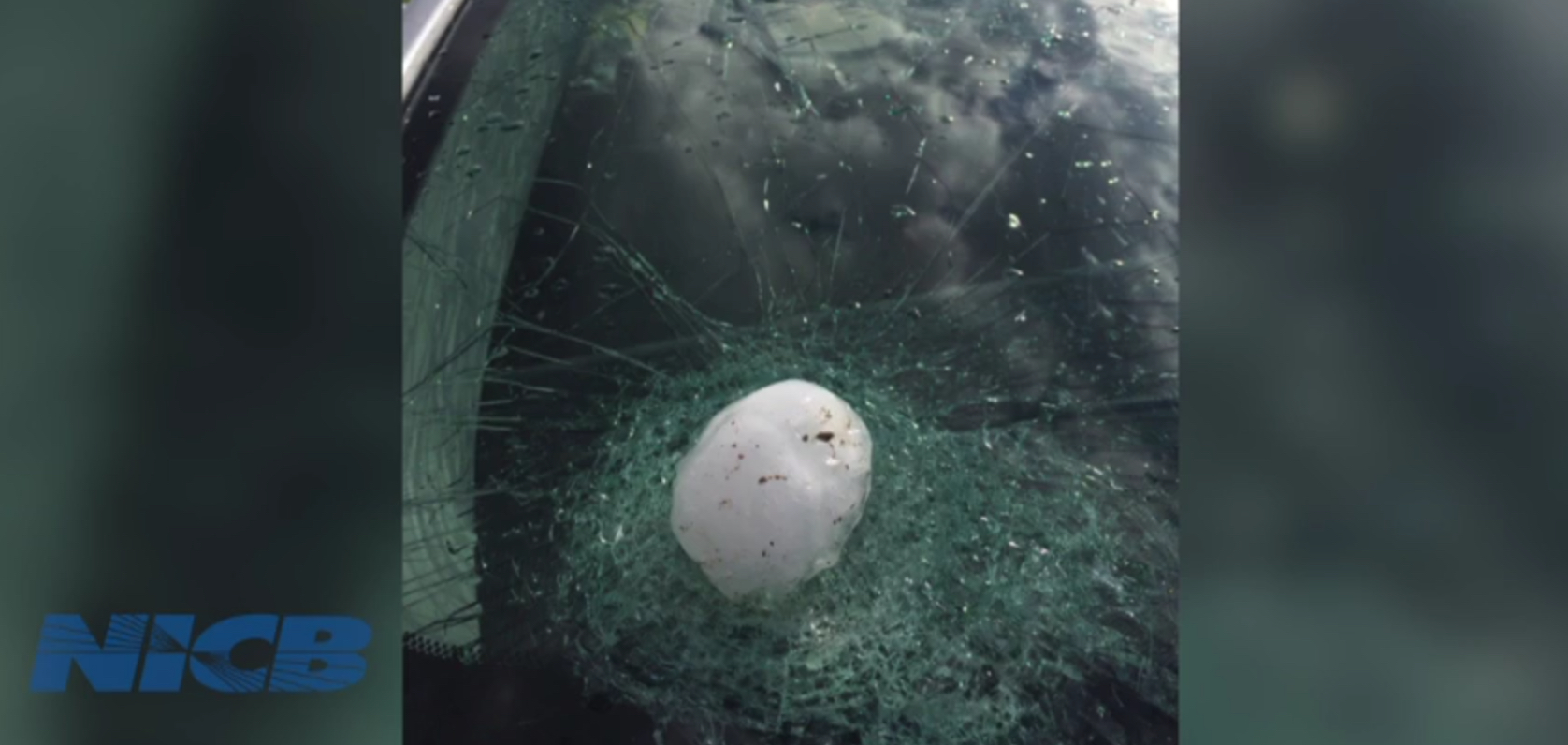Hail Claims Fluctuate Over Past Three Years
Tell a claims adjuster in Texas today that hail damage claims decreased over the past three years and they might consider you crazy. Dealing with thousands of claims from recent record storms in the Dallas and San Antonio areas, insurers and their customers know how Mother Nature can be peaceful one day and in a fury the next.
A hail damaged windshield from an April 2016 storm in Wylie, TX.
The National Insurance Crime Bureau (NICB) today released the most recent three-year analysis of insurance claims associated with hail storms in the United States. In 2013, there were 720,473 hail damage claims filed. That number increased in 2014 to 824,325 then dropped in 2015 to 572,182 claims--an overall decrease of 21percent from 2013 to 2015.
The nation experienced 10 major hail-producing storms during this period according to the National Oceanic and Atmospheric Administration (NOAA), each of which caused over $1 billion in property damage. While experts debate why these storms occur, no one argues with their effects—extensive property damage and many times, loss of life.
According to data from Verisk's A-PLUSTM property database, U.S. insurers paid almost nine million claims for hail losses, totaling more than $54 billion from 2000 through 2013.
In recent years, the costs of these hail-related claims has dramatically increased. The average claim severity during the period 2008-2013 was 65 percent higher than it was from 2000 through 2007.
Weather-related property damage can be as minimal as a few broken shingles to total destruction of buildings. This report focuses on insurance claims resulting only from hail damage.
A total of 2,116,980 hail loss claims were processed from January 1, 2013 through December 31, 2015. During this period, the top five states generating hail damage claims were Texas (394,572), Colorado (182,591), Nebraska (148,346), Kansas (127,963) and Illinois (120,513). The top five months, on average, when the most hail loss claims were reported during this period were May (165,087), April (149,040), June (129,085), March (61,072) and July (55,650).
Download the complete NICB hail loss claims report here.
Enduring a hail storm is challenging enough, but property owners must also be aware that in the wake of any severe storm, they may be visited by unethical contractors posing as sincere repairmen. Often, these "storm chasers" will descend on disaster areas and go door to door offering their repair services. Although most are honest, some are not. If the dishonest ones get your money in advance of performing any work, you'll never see them or your money again.
That's why NICB reminds consumers to always check first with their insurance company before signing any documents presented by a contractor whom you did not request to appear. It's why we say, "If you didn't request it, reject it."
NICB has produced a new public service announcements on contractor fraud that can be seen here and here.
The following tips are also helpful:
- Get more than one estimate
- Don't be pushed into signing a contract right away
- Get everything in writing
- Require references and check them out
- Ask to see the contractor's driver's license and write down the number and the license plate on his or her vehicle.
More consumer protection information is available in our library of brochures.
